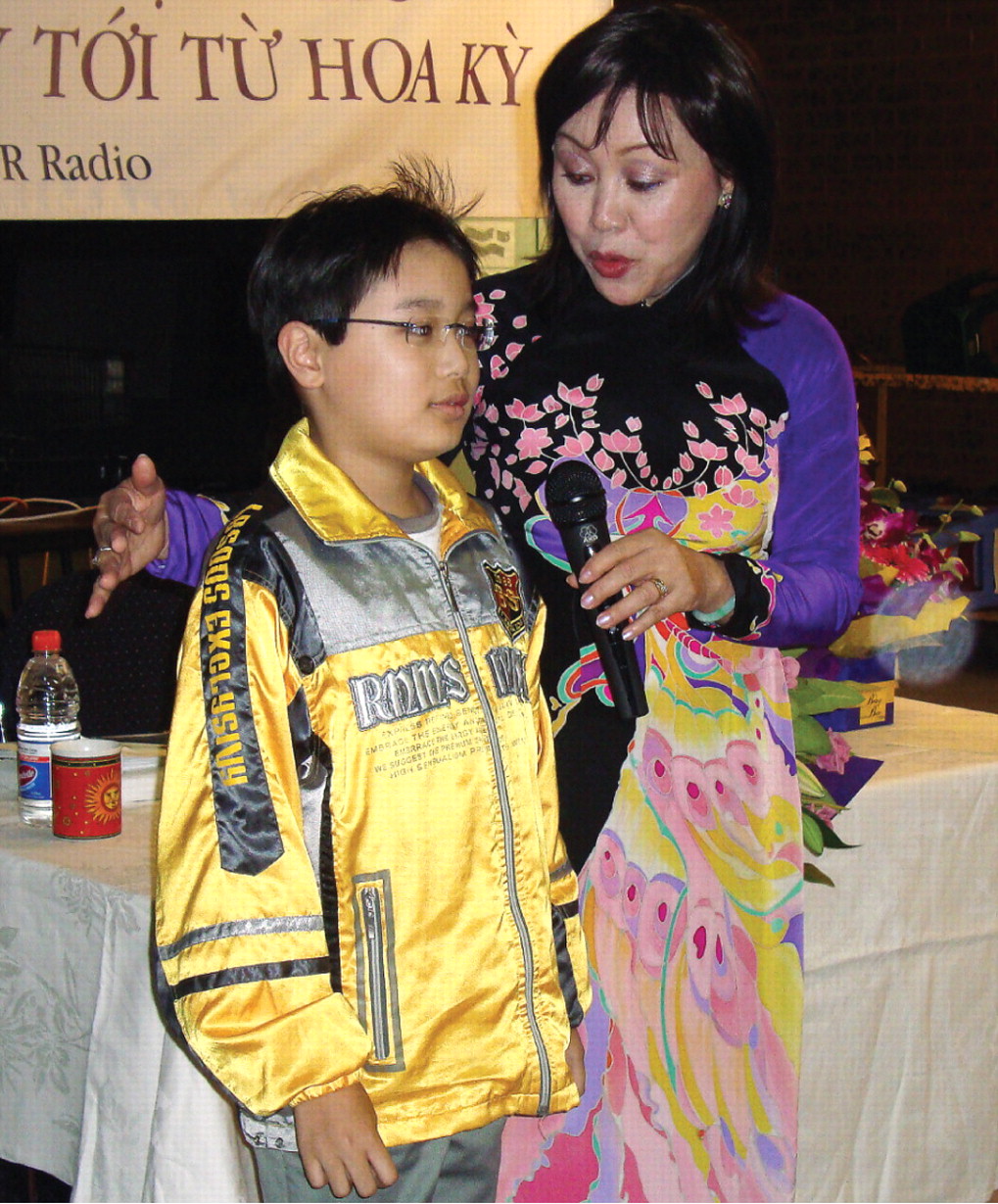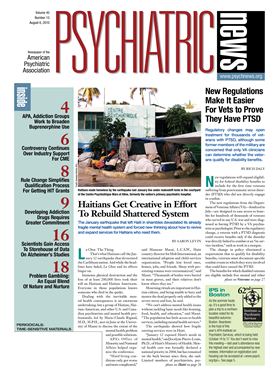Whenever psychiatrist Phuong Thuy Le, M.D., walks into her office in San Jose, Calif., she must be prepared to deal with anything—the daily struggles of one of her patients with serious mental illness or an anonymous question from a woman calling from Perth, Australia, about how to handle an abusive husband.
Much like those she treats or counsels, Le is a survivor.
When she was a small child, Le's father, a wealthy pharmacist, was imprisoned for political reasons by the Communist government of North Vietnam. Soon after that arrest, Le's mother fled North Vietnam with Le and Le's three siblings. They moved to Saigon, South Vietnam, and Le never saw her father again.
Le recalled her adolescence as a tumultuous time for reasons far different from the usual teenage angst. “Each day, more than 1,000 soldiers died in the war,” she told Psychiatric News. With few exceptions, boys and young men were drafted to become soldiers, but Le, as a female, was protected. “Basically, I came of age with a lot of survivor's guilt,” she said.
Le's mother found work with the South Vietnam military as a social worker assigned to help that country's soldiers.
In the meantime, in 1969 Le passed a national entrance exam and began the first of seven years of medical school in Saigon. She was a year away from becoming a doctor when Communist troops stormed Saigon.
“My mother, my next oldest brother, and I ran to the airport,” she recalled, “with nothing—no passports, no tickets, and no visas.” After enemy troops bombed the Saigon airport, U.S. helicopters flew in to rescue those who had survived and were stranded.
In May 1975 the helicopters rescued Le and her family and delivered them safely to Guam, and a few days later to Fort Chaffee, a military post in Arkansas.
By July of that year, Le and her mother and brother had found a home with a family in Columbus, Ohio, through a program sponsored by the Lutheran church. Life in the United States for Le was striking in its contrast to that in Vietnam, she said. “As a child, I'd often dreamt of heaven,” she remarked. “Our new life in the States was like what I'd imagined when I was young—so peaceful and safe compared to life in Vietnam.”
She illustrated her point with a description of a food-shopping excursion she made soon after arriving in Columbus: while pushing a cart brimming with groceries through a Kroger supermarket, the cart tipped, spilling its contents into the aisle. Glass bottles shattered and beverages spilled onto the floor. “I froze,” Le said, “expecting some kind of retaliation or punishment.” Counter to Le's expectations, a crew of smiling store clerks appeared as if out of nowhere and cleaned up the mess without charge. Almost 40 years later, Le recalled the sense of profound relief she felt after that incident.
Resuming an Interrupted Career
Once in Ohio, Le gradually learned to speak English and became self-sufficient. She found work as a case manager and, after moving to California with her family, earned her master's degree in clinical science at San Francisco State University. At that point she decided to resume her goal of becoming a doctor. She graduated from medical school at the American University of the Caribbean after completing a yearlong clerkship in Israel.
Once back in California, Le completed her psychiatry residency at St. Mary's Medical Center in San Francisco in 1990. She established a private practice and also began working part time at a community mental health clinic, Family and Children Services in San Jose, where she continues to work with patients from diverse cultural backgrounds, including those from Cambodia and Vietnam. She noted that stigma regarding mental illness and its treatment was especially pronounced among her Vietnamese patients, leading her to focus on treating their physical symptoms—which were often manifestations of mental health problems. She soon became a trusted practitioner in San Jose's Vietnamese community, but her reach was local. That was about to change.
Her Advice Traverses Oceans
In 1986 Le was invited to be a guest speaker on a Vietnamese-language program on a San Jose radio station. She addressed relationship issues with her audience and became so popular on-air that she soon had her own weekly show, which was called “Hanh Trang Vao Doi,” which in English translates as “Packed for Life.” The topics Le covered included coping with loss, raising children, handling relationships at home and at work, and being a good partner, parent, and friend.
The station reached Vietnamese communities throughout the Bay area and California's central coast, but when her show began airing on satellite radio, Le's voice could be heard as far away as Canada and Europe on a show called “Hanh Phuc Gia Dinh,” or “Family Happiness,” which featured questions from callers about issues relating to the family.
In 2006 Le began contributing to a program on yet another satellite-radio show, this time targeting Vietnamese audiences living in Australia. The show, “Love's Paths,” centers on relationship issues and hits the airwaves on Friday afternoons.
In addition, Le can be seen on the Web site Vietnamdaily.com, where she takes questions that are e-mailed to her cohost and facilitator during half-hour show slots once a week. While her advice reaches the far corners of the world, Le herself sits on the phone in her office for her satellite-radio shows and in a San Jose studio for the Internet show.
She emphasized that she enjoys the opportunity to take questions from callers about the problems they experience and often uses her expertise and influence to educate and combat the stigma that is so common among her Vietnamese audiences about mental illness and treatment. She has also written several books based on her radio and Internet shows.
Of all her accomplishments, however, Le said that she is most proud of her children. Her daughter has recently been accepted to a psychiatry residency program at the University of California, San Francisco, and her son is a third-year medical student at Virginia Commonwealth University School of Medicine.
Le is also married to a psychiatrist—Francis Lu, M.D., who last year took a new position at the University of California, Davis, as the Luke and Grace Kim Endowed Professor in Cultural Psychiatry, director of the cultural psychiatry program, and associate director of the general psychiatry residency training program.
Le's daughter Uyen-Khanh Quang-Dang told
Psychiatric News that she believes that Le and Lu are a “good team” because they take different approaches to psychiatry. Lu takes an “academic and organizational” approach to the field with his administrative and teaching position, while her mother maintains a “grass-roots” approach with her work with patients and advice to the public. “My mother keeps her finger on the pulse of the Vietnamese community,” she added.


